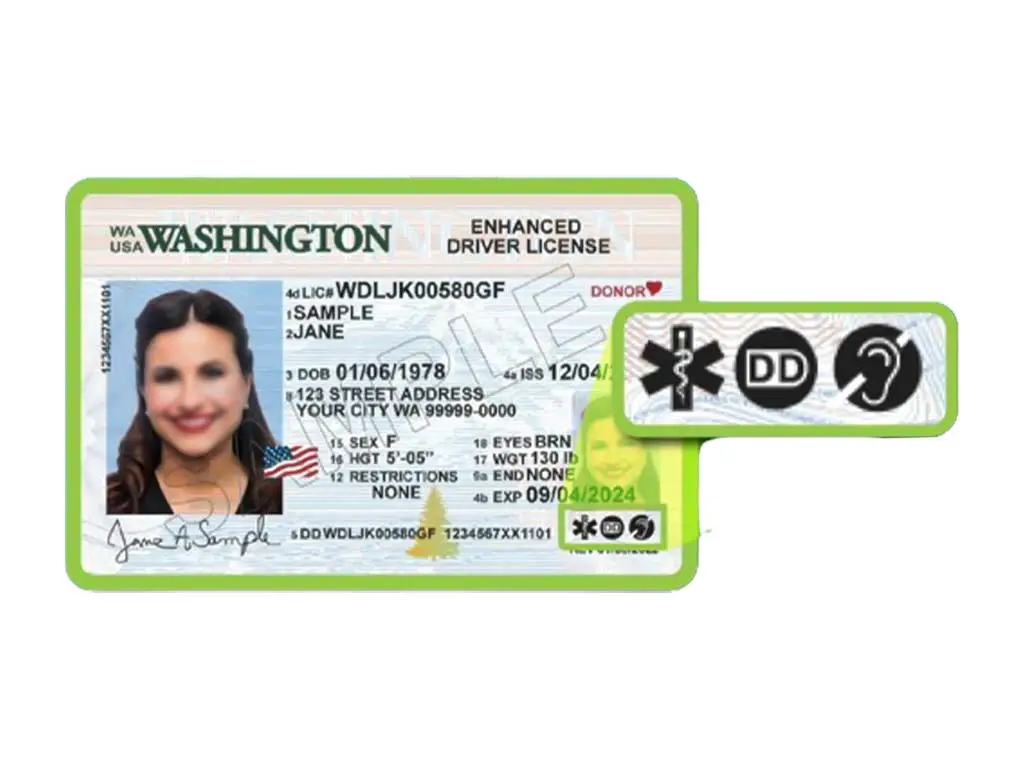Can you travel with a state ID from Washington, D.C.? The answer is yes! Despite not being a state, Washington, D.C. issues its own state ID, which is widely recognized and accepted for domestic travel within the United States.
While the District of Columbia may not have the same sovereign status as a state, its residents can rely on their state-issued identification to navigate airport security checkpoints and board domestic flights without any issues.
In this blog post, we’ll delve into the specifics of using a Washington, D.C. state ID for travel, including its acceptance by the Transportation Security Administration (TSA), requirements for compliance, and essential tips for a hassle-free travel experience. Stay sharp.
Understanding State IDs and Their Uses
State IDs are unique identifiers assigned to individual states within a system or application.
They serve various purposes, including facilitating data organization, enabling efficient state management, and ensuring accurate communication between different components of a system.
State IDs are commonly used in software development, particularly in applications with complex data structures or those that require tracking the state of different entities.
For example, in web development, state IDs may be used to manage the state of user interfaces, track user sessions, or maintain the state of a shopping cart. In database systems, state IDs are crucial for indexing and retrieving specific records efficiently.
Overall, state IDs play a fundamental role in maintaining the integrity and functionality of software systems by uniquely identifying and managing the state of various entities within them.
Washington DC State ID Specifics

Washington, D.C., unlike the 50 states in the United States, is not a state but a federal district. However, it does have its own unique identification system, often referred to as the D.C. identification or D.C. state ID.
Here are some key specifics about Washington, D.C.’s state ID system:
Purpose and Usage
The Washington, D.C. state ID serves a similar purpose to state IDs issued by individual states.
It is primarily used for identification purposes within the district, including accessing various services, proving residency, and confirming identity for activities such as voting or obtaining government benefits.
Issuing Authority
The Department of Motor Vehicles (DMV) in Washington, D.C. is responsible for issuing state IDs. These IDs are available to residents of the district who do not possess a driver’s license or other valid forms of identification.
Design and Features
The D.C. state ID typically features a photograph of the holder, along with personal information such as name, date of birth, and address. It also includes a unique identification number assigned by the DMV to distinguish one ID from another.
Acceptance and Recognition
While not considered a state in the traditional sense, Washington, D.C. state IDs are widely accepted as valid forms of identification within the district.
They are recognized by government agencies, businesses, and other organizations for various purposes, including age verification, employment eligibility, and accessing public services.
Security Measures
Like state IDs issued by individual states, D.C. state IDs incorporate security features to prevent fraud and unauthorized duplication.
These may include holographic images, UV printing, and other measures designed to make the ID difficult to counterfeit.
Accessibility and Availability
Obtaining a D.C. state ID is relatively straightforward for eligible residents.
Applicants typically need to provide proof of identity, residency, and other required documentation, as specified by the DMV. The IDs are available for a fee, with options for renewal or replacement as needed.
Legal Status and Recognition
While Washington, D.C. does not have the same sovereign status as a state, its state ID holds legal recognition within the district and is considered a valid form of identification for various purposes, including interactions with law enforcement, banking transactions, and travel within the United States.
Can You Travel With a State ID From Washington DC?

Yes, you can travel within the United States using a state ID issued by Washington, D.C.
Despite not being a state, Washington, D.C. issues state IDs that are recognized as valid forms of identification for domestic travel. Here’s a detailed look at traveling with a D.C. state ID:
TSA Identification
The Transportation Security Administration (TSA), which oversees security at airports across the United States, accepts D.C. state IDs as valid forms of identification for domestic flights.
Passengers can use their D.C. state ID to pass through security checkpoints and board flights within the U.S
REAL ID Compliance
D.C. state IDs can also be compliant with the REAL ID Act, a federal law that establishes minimum security standards for state-issued identification cards.
A D.C. state ID that meets REAL ID requirements can be used for domestic air travel and access to federal facilities where identification is required.
Verification Process
When presenting a D.C. state ID at airport security, TSA agents typically verify its authenticity and validity by checking the security features and matching the information on the ID with the passenger’s boarding pass.
Alternative Forms of Identification
While a D.C. state ID is acceptable for domestic air travel, passengers may also use other forms of identification such as a valid U.S. passport, passport card, or military ID.
Interstate Travel
In addition to air travel, a D.C. state ID can be used for other forms of domestic travel, including train and bus travel within the United States. It serves as a valid form of identification when purchasing tickets and during security checks.
Validity Period and Renewal
It’s important for travelers to ensure that their D.C. state ID is valid for the duration of their trip. Like driver’s licenses and other forms of identification, D.C. state IDs have expiration dates and may need to be renewed periodically.
Recognition by Other States
While traveling within the United States, D.C. state IDs are generally recognized and accepted by other states and territories for identification purposes, including hotel check-ins, car rentals, and other transactions where identification is required.
List of IDs Accepted by TSA for Domestic Flights
The Transportation Security Administration (TSA) enforces security measures at airports across the United States to ensure the safety of air travel.
When it comes to domestic flights, TSA has specific requirements for acceptable forms of identification that passengers must present at security checkpoints.
Here’s an elaborate look at the list of IDs accepted by TSA for domestic flights:
1. State-Issued Driver’s License
A state-issued driver’s license is one of the most commonly accepted forms of identification for domestic air travel.
Each state in the U.S. issues its own driver’s licenses, which typically include the holder’s photograph, name, address, date of birth, and expiration date.
2. State Identification Card
State identification cards are government-issued IDs available to individuals who do not possess a driver’s license.
These IDs serve as official proof of identity and are accepted by TSA for domestic flights. They contain similar information to driver’s licenses but do not grant driving privileges.
3. U.S. Passport
A U.S. passport is a universally recognized travel document issued by the U.S. Department of State. It serves as proof of citizenship and identity and is widely accepted by TSA for domestic air travel, in addition to international flights.
Passports typically feature a photograph, name, nationality, date of birth, and passport number.
4. Passport Card
The passport card is a wallet-sized alternative to the traditional passport book. It contains similar information to the passport but is specifically designed for land and sea travel to and from Canada, Mexico, the Caribbean, and Bermuda.
While primarily intended for border crossings, the passport card is also accepted by TSA for domestic flights.
5. Military ID
Active duty members of the U.S. Armed Forces, including members of the Army, Navy, Air Force, Marines, Coast Guard, and National Guard, can present their military ID as a valid form of identification for domestic air travel.
Military dependents and retirees may also use their respective military IDs.
6. Tribal ID
Tribal identification cards issued by federally recognized Native American tribes are accepted by TSA for domestic flights. These IDs typically include the holder’s photograph, tribal affiliation, and other identifying information.
7. DHS Trusted Traveler Cards
Certain travelers enrolled in trusted traveler programs administered by the Department of Homeland Security (DHS), such as TSA PreCheck, Global Entry, SENTRI, and NEXUS, may use their respective membership cards as valid forms of identification for domestic flights.
8. Permanent Resident Card
Also known as a green card, the permanent resident card is issued to foreign nationals who are authorized to live and work in the United States permanently.
It serves as proof of legal residency and is accepted by TSA for domestic air travel.
9. Border Crossing Card
The border crossing card, also known as the BCC or “DSP-150,” is issued by the U.S. Department of State to Mexican citizens for frequent travel to the United States.
While primarily intended for land and sea border crossings, the border crossing card is accepted by TSA for domestic flights.
10. Other Forms of Identification
In addition to the aforementioned IDs, TSA may accept other forms of identification on a case-by-case basis.
Examples include foreign government-issued passports, transportation worker identification credentials (TWIC), and federally recognized tribal employee IDs.
It’s essential for travelers to ensure that their chosen form of identification is valid and current before heading to the airport for a domestic flight.
Failure to present acceptable identification may result in denial of boarding by the airline or additional screening by TSA at security checkpoints.
Wrapping Up
Travelers can confidently use a state ID issued by Washington, D.C. for domestic air travel within the United States.
Despite Washington, D.C. not being a state, its state ID is widely recognized and accepted by the Transportation Security Administration (TSA) at airport security checkpoints.
Whether it’s for business or leisure, residents of the district can rely on their D.C. state ID to navigate through airport security and board domestic flights without any issues.
However, it’s crucial for travelers to ensure that their D.C. state ID is valid and meets any additional requirements, such as REAL ID compliance, to ensure a smooth travel experience.
With proper documentation in hand, travelers from Washington, D.C. can embark on their journeys with confidence and peace of mind. Best of luck.




Scott Jung